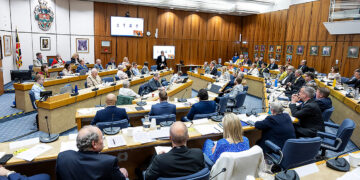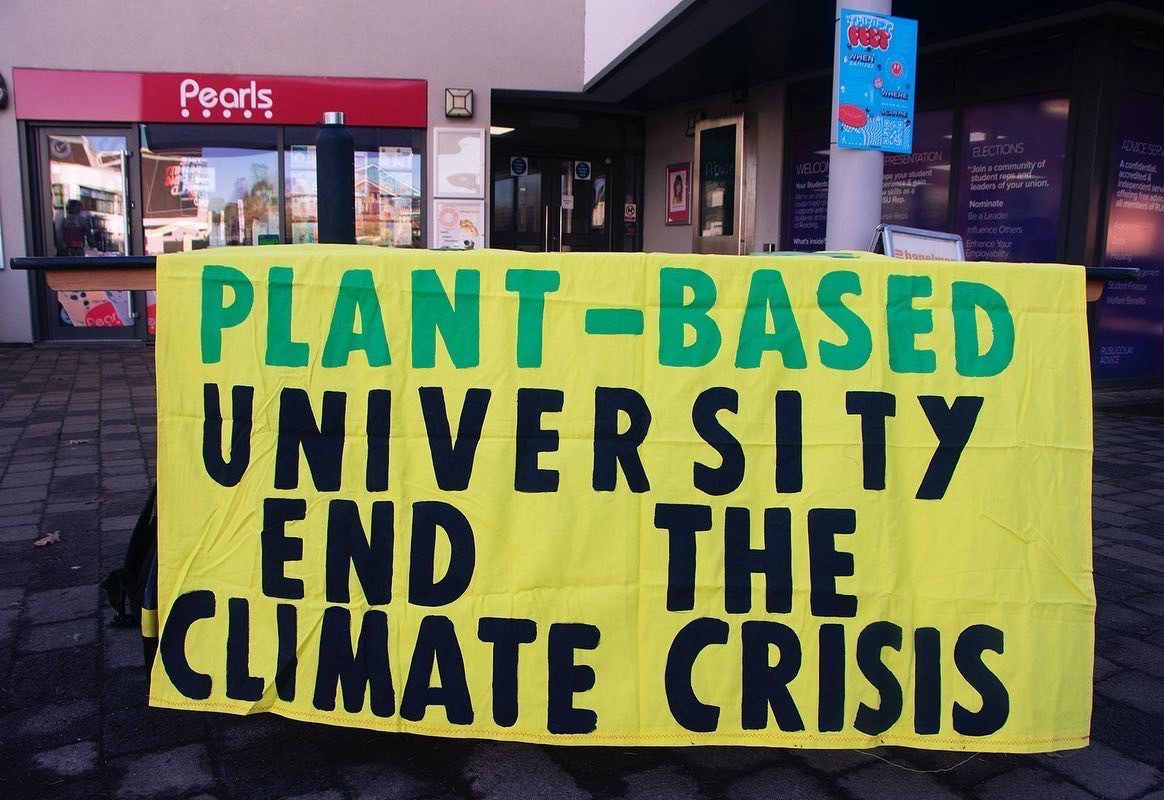A CAMPAIGN group has penned an open letter imploring universities to operate on a fully plant-based basis in the wake of the climate crisis.
Plant Based Universities raised their concerns to vice-chancellors, catering managers and students union presidents and had their letter signed by 864 academics across the globe, including 26 from the University of Reading.
Climate science expert, Prof Richard Allan, who featured in the 2021 UN climate report was one of the academics who backed the campaign.
Prof Ciara McCabe, professor of neuroscience at Reading, said: “We are in a climate emergency and the single biggest thing any individual can do to combat carbon emissions is reduce their meat and dairy intake.
“But we need our catering to enable this. Universities going plant-based means they lead the way in helping individuals make better climate-conscious choices.”
The group cited scientific research which suggested that plant-based food systems are essential to combatting the climate crisis, identifying a study by Dr Joseph Poore and Dr Thomas Nemecek which demonstrates the damage caused to the environment by the generation of animal products. They suggest that this is mainly through greenhouse gas emissions, water pollution, and ineffective land and water use.
Other research suggests going plant-based and rewilding freed-up land could help the UK achieve carbon negative status.
Molly Butler, from Plant-Based Universities Reading said: “Reading University is a leading university in climate research and their expertise means they have the responsibility to safeguard our futures.
“The plant-based solution we’re offering to them is essential and can provide hope in the face of the climate crisis.”
The Plant-Based Universities campaign was established by students and is active in more than 50 institutions. The Reading arm began in September 2022, and has continued this academic year.
The group is hoping it will join the seven universities that have made a commitment to be 100% plant-based.
A spokesperson for the University of Reading said: “The University of Reading is one of the world’s leading centres for the study of food, farming and the environment. We are also dedicated to promoting and contributing to debate on crucial policy issues. We strongly welcome this discussion about moving towards plant-based diets and are grateful to those who have joined the debate and are asking us about this.
“Environmental sustainability is one of our key principles. We are taking actions that will not only reduce our own impact on the environment but which will help others to do the same.
“Having considered the proposals, we don’t think that changing our menus to serve only 100% plant-based meals is the best way to achieve the best results for the environment, or for students and other diners on our campuses.
“Moving to only plant-based food would reduce the measurable impact of our own emissions. But the evidence shows that a wider system shift is required to make a meaningful change to people’s eating habits. Schemes that move meat consumption to other times or places, such as ‘meat-free Mondays’ for example, can lack long-term effectiveness, and can just encourage diners to eat meat at other times, or other locations.
“Reading was the first European university to join the Menus of Change Universities Research Collaborative. Through this collaboration of 60 global universities, we are researching and testing successful methods of shifting the eating habits and behaviour for all consumers. We aim to make environmentally friendly options tasty, appealing and diverse.
“We are looking to change people’s behaviour with food in the long term. We are currently running a series of trials on campus, such as changing how we present food on shelves and on menus, and by using different labels and descriptions. And we are using more plant-based protein in a number of different meals. For example, our beef burgers are made of 80% beef from our own farms, along with 20% mushrooms. And for those that choose them, they are delicious.”













































